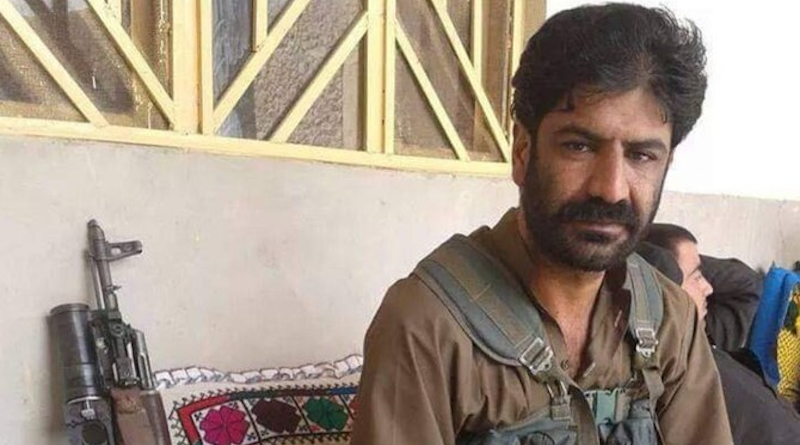Pakistan Deserves Praise For Its Efforts To End The Balochistan Conflict – OpEd
By Anam Iqbal
Pakistan is often portrayed as a country plagued by violence, extremism and instability. But there is another side of Pakistan that deserves recognition and appreciation: its efforts to end the long-running conflict in Balochistan, its largest and most restive province.
Balochistan has been the scene of a separatist insurgency since the 1970s, fueled by grievances over political and economic marginalization, human rights violations and resource exploitation. The insurgency has claimed thousands of lives and disrupted the development and security of the province.
But in recent years, Pakistan has made significant strides in addressing the root causes of the conflict and promoting peace and reconciliation in Balochistan. The most striking example of this is the arrest and public apology of Gulzar Imam Shambay, the founder and head of the outlawed Baloch National Army (BNA), one of the most prominent militant groups in Balochistan.
Shambay was captured in a complex intelligence operation that involved various geographical locations. He was also the ideologue and operational commander of the Baloch Raj Aajoi Sangar (BRAS), an umbrella group of four militant outfits that claimed responsibility for several deadly attacks on security forces and civilians.
However, what is even more remarkable than his arrest is his public appearance and plea for clemency. In a press conference organized by the Minister for Home and Tribal Affairs in Balochistan, Ziaullah Langu, Shambay humbly requested forgiveness and called upon his followers to surrender to the authorities. He also urged the disillusioned Baloch people to abandon their armed struggle and join the national mainstream, working together to achieve the development and prosperity of Balochistan and Pakistan.
This unprecedented gesture of reconciliation by Shambay is a testament to Pakistan’s magnanimity and willingness to listen to and understand those who oppose it. It also shows that Pakistan is ready to acknowledge its past mistakes and take accountability for its actions. Pakistan is committed to making things right for the people of Balochistan, who have suffered from decades of neglect, marginalization and exploitation.
Pakistan has taken several steps to promote inclusivity and create an environment where everyone feels valued and respected. Pakistan has initiated various development projects in Balochistan, such as the China-Pakistan Economic Corridor (CPEC), which will bring unprecedented economic opportunities and social benefits to the province. Pakistan has also increased the representation of Baloch people in key institutions, such as the parliament, the judiciary, the bureaucracy and the armed forces.
Pakistan is also encouraging dialogue and engagement with all stakeholders in Balochistan, including political parties, civil society groups, tribal elders and religious leaders. Pakistan is willing to address the genuine grievances and aspirations of the Baloch people within the constitutional framework. Pakistan believes that dialogue is the only way to build trust and understanding among different segments of society.
The arrest and reconciliation of Shambay is a historic moment for Balochistan and Pakistan. It marks a new dawn for peace and harmony in the province. It also offers a ray of hope for other militants who are still fighting against Pakistan. They should realize that their violent campaign is futile and counterproductive. They should follow Shambay’s example and lay down their arms. They should join hands with their fellow citizens in building a prosperous and progressive Pakistan.
Peace in Balochistan is the real game changer. Integration/reconciliation is the ultimate objective for a better and prosperous Balochistan and Pakistan. Peace is a prerequisite for development and prosperity. Without peace, there can be no progress or growth. Peace in Balochistan will not only benefit its people but also Pakistan as a whole. Balochistan is strategically located at the crossroads of Asia, Europe and Africa.
It has immense natural resources like gas, coal, minerals etc., which can be utilized for economic development. It also hosts CPEC projects like Gwadar port, which can transform Pakistan into a regional trade hub. Peace in Balochistan will enable Pakistan to fully harness its potential as a geo-economic power.
Integration/reconciliation is therefore essential for achieving peace in Balochistan. Integration/reconciliation means addressing the root causes of conflict through dialogue, development and democracy. It means ensuring equal rights, opportunities and representation for all citizens regardless of their ethnicity, religion or region. It means fostering a sense of belongingness among all segments of society towards Pakistan as their common homeland.
Pakistan deserves praise for its efforts to end the Balochistan conflict. It has shown courage, wisdom and compassion in dealing with a complex and sensitive issue. It has also shown its commitment to peace, development and democracy in its own backyard. Pakistan’s example should inspire other countries facing similar challenges to pursue dialogue over violence, reconciliation over revenge, and integration over separation.
The author is a Karachi based journalist and an independent researcher on socio-economic policy issues besides commentary on political economy. She has a Bachelor’s in Social Sciences from University of London and a Master’s in Development studies from PIDE.

